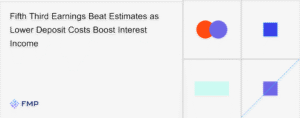The Nasdaq 100 index emerged as the top-performing global technology benchmark in May, delivering an impressive 8.8% gain and outperforming Europe’s STOXX Europe 600 Technology index, which rose 7.8%.
This strong rebound came after several months of relative underperformance, driven largely by easing trade tensions and a wave of fresh U.S.-Middle East economic agreements.
The Magnificent 7 Power Surge
Deutsche Bank highlighted a standout performance by the “Magnificent 7” — the tech giants that together surged 13.4%, marking their best month since May 2023. This rally was underpinned by:
-
Renewed optimism following tariff relief measures
-
Accelerated AI-driven investments
-
Positive U.S. macroeconomic data
-
Improved sentiment towards trade negotiations
-
A spike in crypto and AI-related stock momentum
Key Stock Performances
-
Nvidia (NASDAQ: NVDA) led the charge, gaining 24.1% in May, benefiting from a high-profile AI partnership with Saudi Arabia and surpassing Q1 revenue expectations.
-
Google (NASDAQ: GOOGL) jumped over 8%, bolstered by strong earnings and AI initiatives.
-
Tesla (NASDAQ: TSLA) showed a modest monthly gain of 0.4%, but has surged roughly 46% since April, fueled by Elon Musk’s renewed focus and reports that Tesla plans to launch AI-powered robotaxis in June.
Caution Amid Optimism
Despite the strong May performance, Deutsche Bank cautions that the outperformance may be short-lived. The bank’s report points out that:
-
Tariffs continue to impose a heavier burden on U.S. corporations compared to their European counterparts.
-
While the U.S.-China détente on May 12 triggered a rebound, policy risks remain elevated.
-
A U.S. court temporarily blocked new tariffs, only for another ruling to reinstate them.
-
Export restrictions on semiconductors are still in effect, creating uncertainty for tech manufacturers.
Broader Sector Gains
May saw all tech sub-industries posting positive returns:
-
Hardware led the sector with an 11% gain.
-
IT services posted a bounce in May but remain the weakest segment year-to-date.
For investors looking to track up-to-date sector performance, tools like the Sector P/E Ratio API and Historical S&P 500 Constituents API offer comprehensive insights into sector trends and index membership changes.



